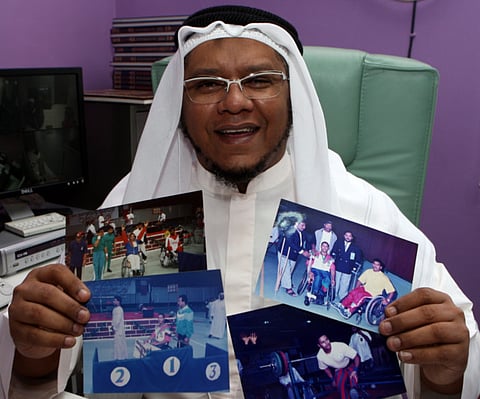Saif shows the safe way out
Amnesty seekers with bounced-cheque cases urged to surrender early

DUBAI The sooner an illegal overstayer surrenders to authorities, the better for him, says an Emirati businessman-philanthropist who had been helping amnesty seekers.
“There’s always a solution to a problem. And there’s no sense in waiting until the last minute,” said Ali Saif, managing director of Ali Saif Group of Companies.
For illegal overstayers who face bounced-cheque cases lodged by banks, he suggested a way out. “Banks file bounced-cheque cases against bad debtors because it allows them to file insurance claims. In 95 per cent of cases, banks don’t file a civil case because it’s costly, with little benefit,” he said.
He cited the experience of a Pakistani man who faced a bank case and who had been staying illegally in the UAE for three years.
“I convinced him to surrender early and he did. We found a Dh500,000 bounced-cheque case filed against him. Many people do not know that in 2011 a law was passed allowing judges to give the lowest possible penalties to people who face bounced-cheque cases. As a result, the judge just gave him a Dh5,000 fine.”
Saif, former Paralympics powerlifting champ with 12 gold medals earned for the UAE, has helped hundreds of people during past amnesty programmes. He currently looks after 70 companies, from construction to restaurants.
“In the past, the fines were waived and applicants were allowed to legalise their status without leaving the country. Now, an overstayer must first fly outside, then come back after a minimum of seven days. Even then this is still a great gesture of generosity.”
Saif also cited a case in which a Filipino amnesty seeker had been on the run in Dubai for 11 years, accumulating fines of Dh380,000 until both his kidneys failed due to a long bout of diabetes.
“His medical condition left him with no choice but to fly home. All these years he was just living in fear. His fines were waived and he even received free dialysis sessions in a charity ward of two hospitals,” he said. The man flew back to Manila on New Year’s Eve.
“I understand it’s not so easy to surrender, especially when you have no passport – or don’t know where to start. But in my experience, authorities here will not make your life any harder and they give utmost respect to people.”
Since December 4, when the amnesty started, Saif had personally driven dozens of people to submit themselves to immigration officers in Dubai and Abu Dhabi.
Asked what motivates him to go out of his way to help, Saif said: “I am a nobody… just helping another human being. When you stand for someone else today, someone else will stand for you tomorrow. This is how my business is blessed. You cannot put a limit on the generosity of people who help without asking for anything in return,” said Saif, 38, who contracted polio when he was only eight years old.
“But the only way you can help a person properly is if he tells you the truth.”



